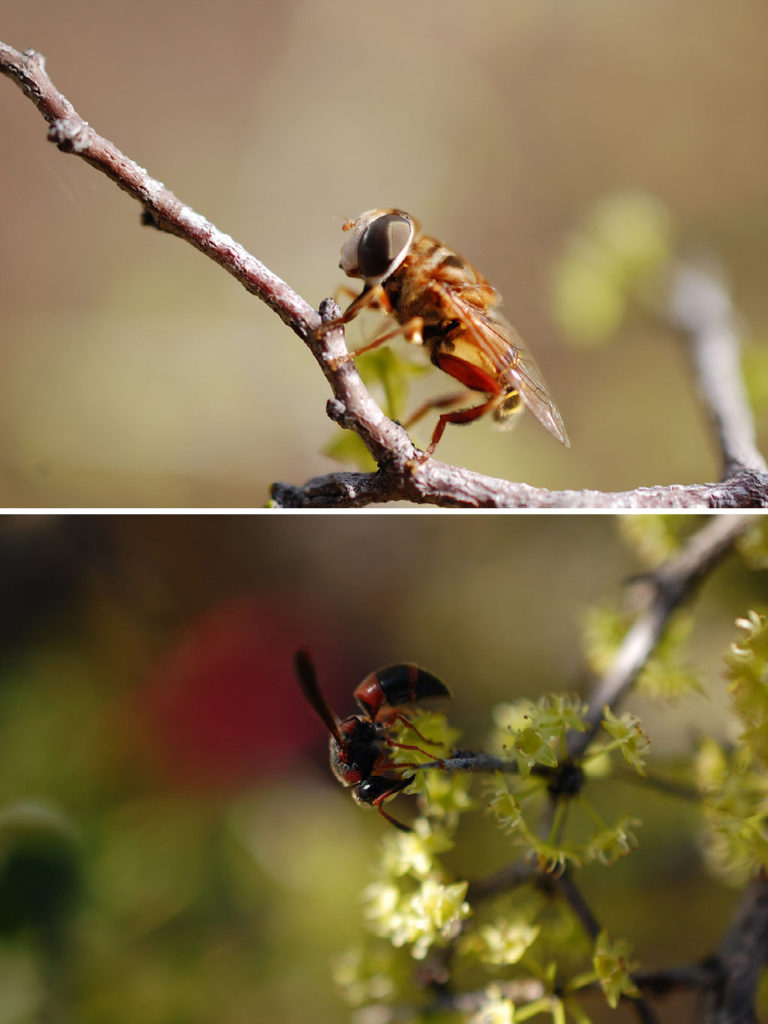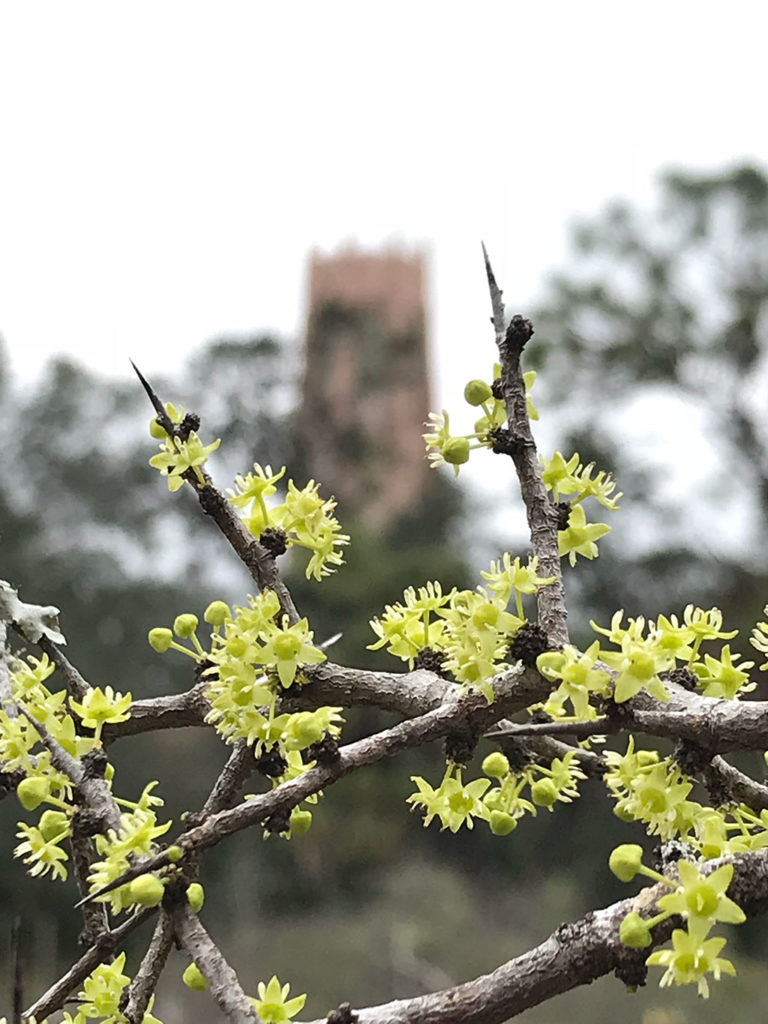Cross-Pollinating Preservation
A thorny, deciduous shrub called Florida Zizphus (Zizphus celata) can only be found in two counties of Lake Wales Ridge in central Florida. The type specimen was collected in 1948, but apparently the species was not seen again and was presumed to be extinct, until Kris Delaney rediscovered a small group of plants in 1987. By 2001, eight other small populations were found.
Although adult plants flower profusely, with tiny yellow-green bisexual flowers that attract numerous diverse insect species, no fruit production occurred in the wild. Genetic research through Archbold Biological Station and the University of Florida showed that these remnant populations are clonal and generally composed of a single genetic individual. They are incapable of producing viable seeds. The good news was that the different populations contained different genotypes. Although research showed many of the genotypes to be cross-incompatible (not able to cross-pollinate), it also showed that there were at least three cross-compatible mating types.
Bok Tower Gardens began propagating clones from the various populations and created a captive population that by the mid-1990s began to produce an annual fruit crop. This allowed the open cross-pollination of compatible genotypes. However, low overall genetic variation remained a problem to species recovery. Then in 2007 five more populations were located, which included what are now two of the largest populations known, and which tripled the number of wild genotypes. The largest population even contained at least new mating types and produced some fruit, although no seedlings have ever been seen in the wild.
The addition of the new genotypes to the captive population at Bok Tower Gardens is underway and will be extremely important to the long-term preservation of the species. Seeds produced from crosses of all genotypes will be the best way to preserve the genetic diversity remaining in the species, both in the ex situ National Collection at Bok Tower Gardens, and in situ through population introductions. Already, seedlings propagated from many years of seed collection from the captive and the one reproductive wild population, representing the most genetic diversity available to date, have been used to establish new populations on protected lands. As these newly-created populations mature and become reproductive, it is hoped they will produce seeds and eventually seedlings, and therefore be self-sustaining to preserve the species.
(Content provided by Cheryl Peterson. Image: Flowers on a Ziziphus celata specimen in the National Collection, January 2018)

